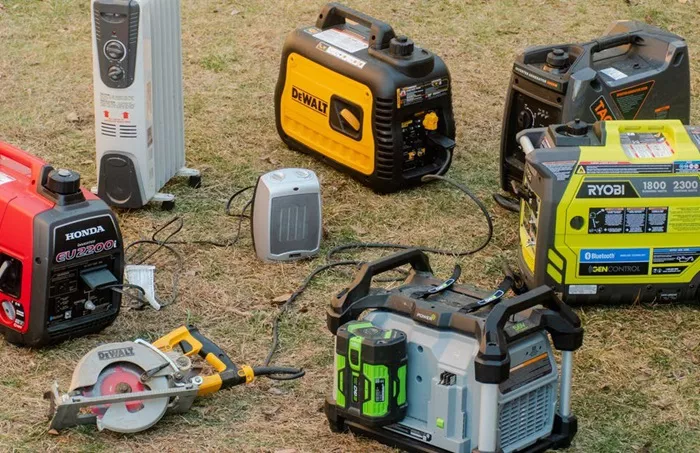When it comes to keeping your 1500 sq ft home powered during an outage, choosing the right generator is crucial. Whether you’re dealing with a storm, grid failure, or planned maintenance, a reliable generator ensures your lights stay on, your fridge keeps running, and your family stays comfortable. In this guide, we’ll explore everything you need to know about selecting the best generator for your home.
Why Do You Need a Generator for a 1500 Sq Ft Home?
Power outages can happen unexpectedly, and they can last for hours or even days. For a 1500 sq ft home, a generator provides peace of mind by ensuring essential appliances and systems continue to function.
Here’s why you need one:
Keeps essential appliances running: Refrigerators, freezers, and medical devices stay operational.
Maintains comfort: Powers heating or cooling systems, lights, and electronics.
Protects your home: Prevents damage from frozen pipes or spoiled food.
How to Determine the Right Generator Size
Choosing the correct generator size is critical. A generator that’s too small won’t meet your power needs, while one that’s too large wastes fuel and money.
Calculate Your Home’s Power Requirements
To determine the right generator size, follow these steps:
List essential appliances: Include refrigerators, lights, HVAC systems, and electronics.
Check wattage requirements: Refer to the manufacturer’s labels or manuals.
Add up the wattage: Ensure the total doesn’t exceed the generator’s capacity.
For a 1500 sq ft home, a generator with 5,000 to 7,500 watts is typically sufficient.
Consider Starting vs. Running Wattage
Some appliances, like refrigerators and air conditioners, require more power to start than to run. Make sure your generator can handle the starting wattage.
Types of Generators for a 1500 Sq Ft Home
There are three main types of generators to consider:
Portable Generators
Portable generators are affordable and versatile. They’re ideal for powering essential appliances during short outages.
Pros: Affordable, easy to move, and versatile.
Cons: Limited power output, requires manual setup, and runs on gasoline.
Inverter Generators
Inverter generators are quieter and more fuel-efficient than traditional portable generators. They’re perfect for powering sensitive electronics.
Pros: Quiet, fuel-efficient, and safe for electronics.
Cons: Higher cost and lower power output compared to standby generators.
Standby Generators
Standby generators are permanently installed and automatically turn on during an outage. They’re the most reliable option for whole-home power.
Pros: Automatic operation, high power output, and runs on natural gas or propane.
Cons: Expensive and requires professional installation.
Top Generator Picks for a 1500 Sq Ft Home
Here are some of the best generators for a 1500 sq ft home:
1. Generac 7043 Home Standby Generator
Power Output: 22,000 watts
Fuel Type: Natural gas or propane
Features: Automatic operation, Wi-Fi monitoring, and durable construction.
Best For: Whole-home power during extended outages.
2. Champion 100263 Portable Generator
Power Output: 9,375 watts
Fuel Type: Gasoline
Features: Electric start, dual-fuel capability, and affordable price.
Best For: Budget-conscious homeowners needing portable power.
3. Honda EU2200i Inverter Generator
Power Output: 2,200 watts
Fuel Type: Gasoline
Features: Quiet operation, fuel efficiency, and compact design.
Best For: Powering sensitive electronics and small appliances.
Key Features to Look for in a Generator
When shopping for a generator, consider these features:
Fuel Efficiency
A fuel-efficient generator saves money and reduces environmental impact. Inverter generators are known for their excellent fuel efficiency.
Noise Level
If noise is a concern, opt for an inverter or standby generator. Portable generators tend to be louder.
Run Time
Look for a generator with a long run time to minimize refueling during outages.
Transfer Switch
A transfer switch ensures safe and seamless power transfer from the generator to your home’s electrical system.
Installation and Maintenance Tips
Proper installation and maintenance are essential for generator performance and longevity.
Professional Installation
For standby generators, hire a licensed electrician to handle installation. This ensures compliance with local codes and safety standards.
Regular Maintenance
Check oil levels: Change the oil according to the manufacturer’s recommendations.
Inspect the air filter: Clean or replace it as needed.
Test the generator: Run it periodically to ensure it’s in working order.
Safety Considerations
Generators can be dangerous if not used properly.
Follow these safety tips:
Keep it outdoors: Never run a generator indoors or in an enclosed space.
Use proper extension cords: Ensure cords are rated for the generator’s power output.
Avoid overloading: Don’t exceed the generator’s wattage capacity.
Cost of Generators for a 1500 Sq Ft Home
The cost of a generator depends on the type and features:
Portable generators: 2,000
Inverter generators: 3,000
Standby generators: 2,000 to 10,000+
While standby generators are more expensive, they offer the most convenience and reliability.
Environmental Impact of Generators
Generators emit carbon monoxide and other pollutants.
To minimize environmental impact:
- Choose a fuel-efficient model.
- Opt for natural gas or propane over gasoline.
- Use the generator only when necessary.
Frequently Asked Questions
1. What size generator do I need for a 1500 sq ft home?
A generator with 5,000 to 7,500 watts is typically sufficient for a 1500 sq ft home.
2. Can I power my entire home with a portable generator?
Portable generators can power essential appliances but may not support whole-home power.
3. How long can a generator run continuously?
Run time varies by model and fuel type. Most generators can run for 8 to 12 hours on a full tank.
4. Do I need a permit to install a standby generator?
Yes, most areas require a permit for standby generator installation.
Conclusion
Choosing the best generator for a 1500 sq ft home involves understanding your power needs, budget, and preferences. Whether you opt for a portable, inverter, or standby generator, ensure it meets your requirements and is properly maintained. With the right generator, you can keep your home powered and your family safe during any outage.
Related topic:
- 5 Top-Rated Portable Generators for Home Use
- 5 Top Quiet Home Generators for Peaceful Power
- 4 Best Non-Gas Generators for Home Use

